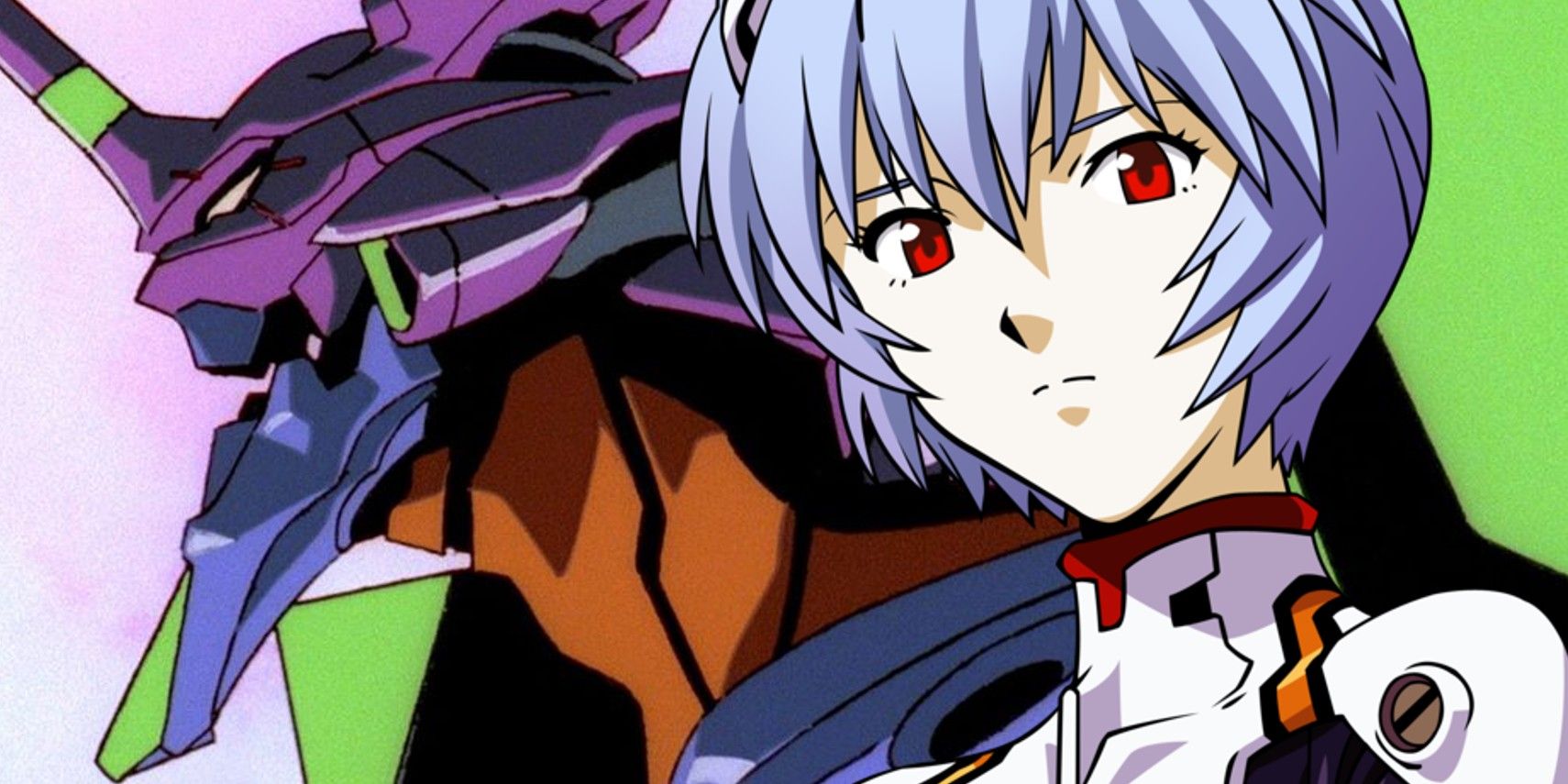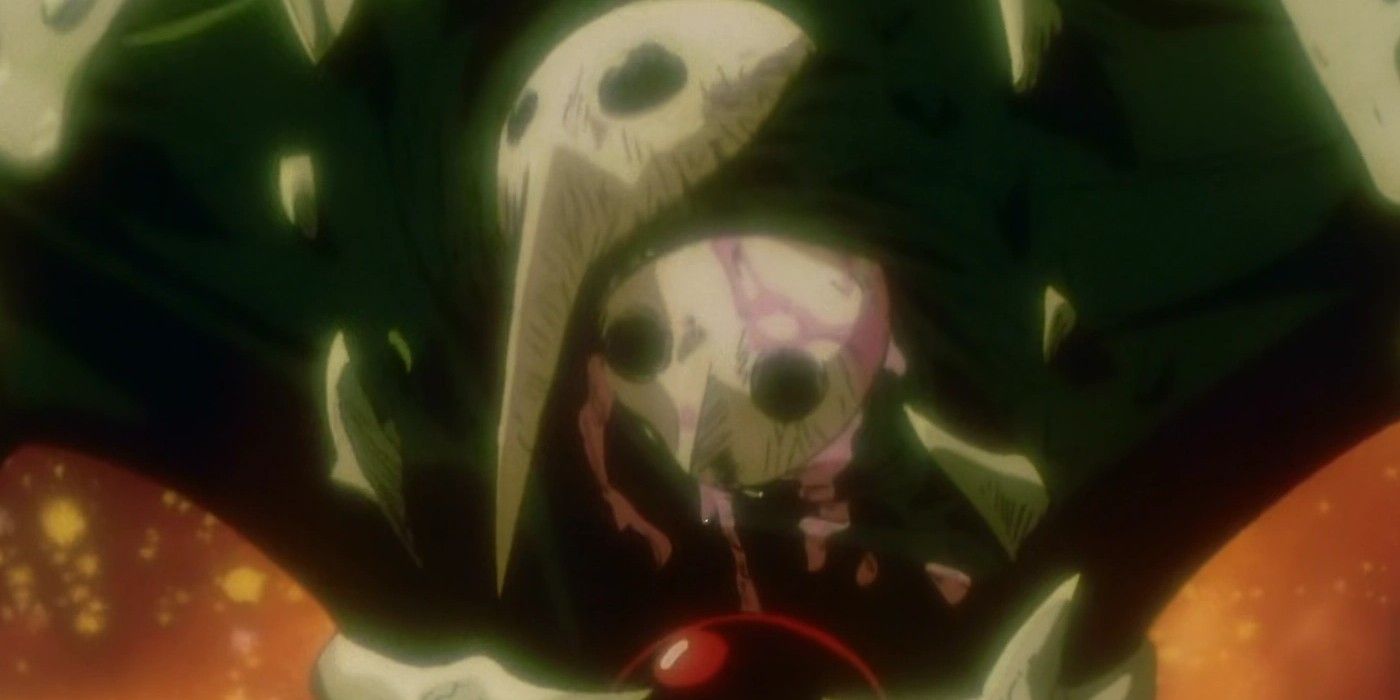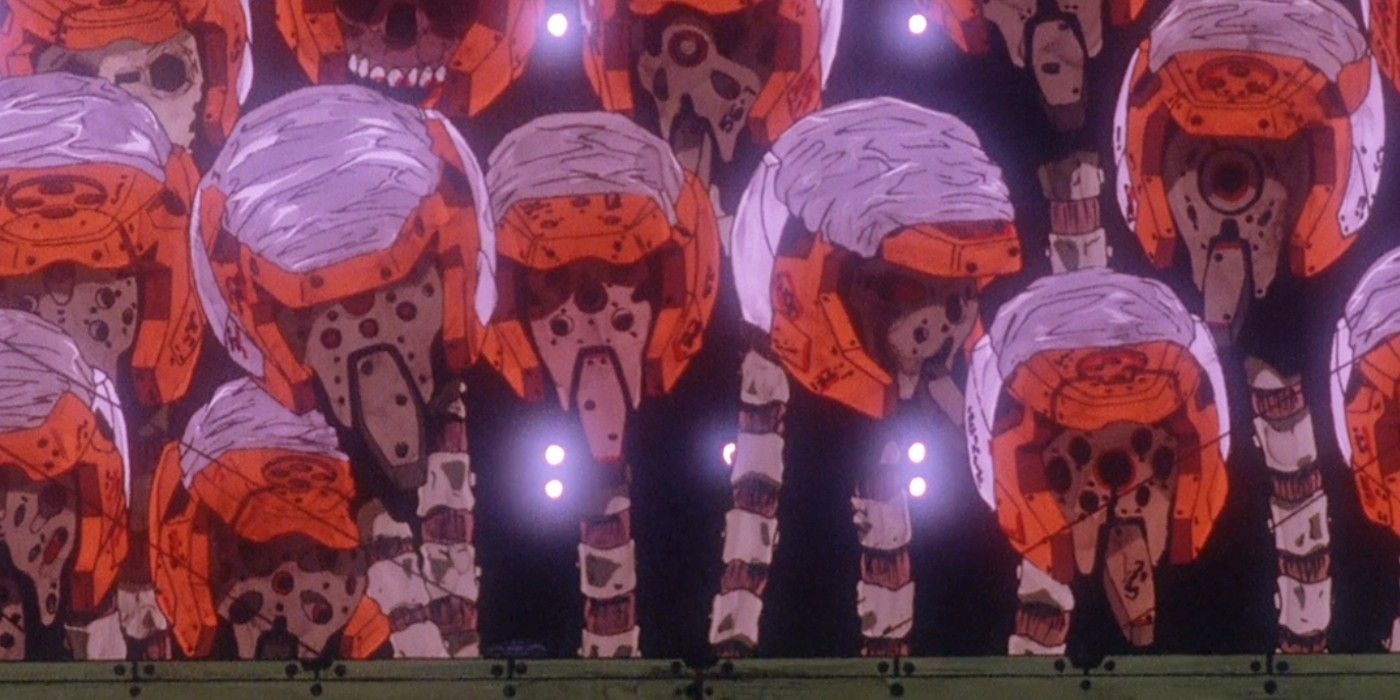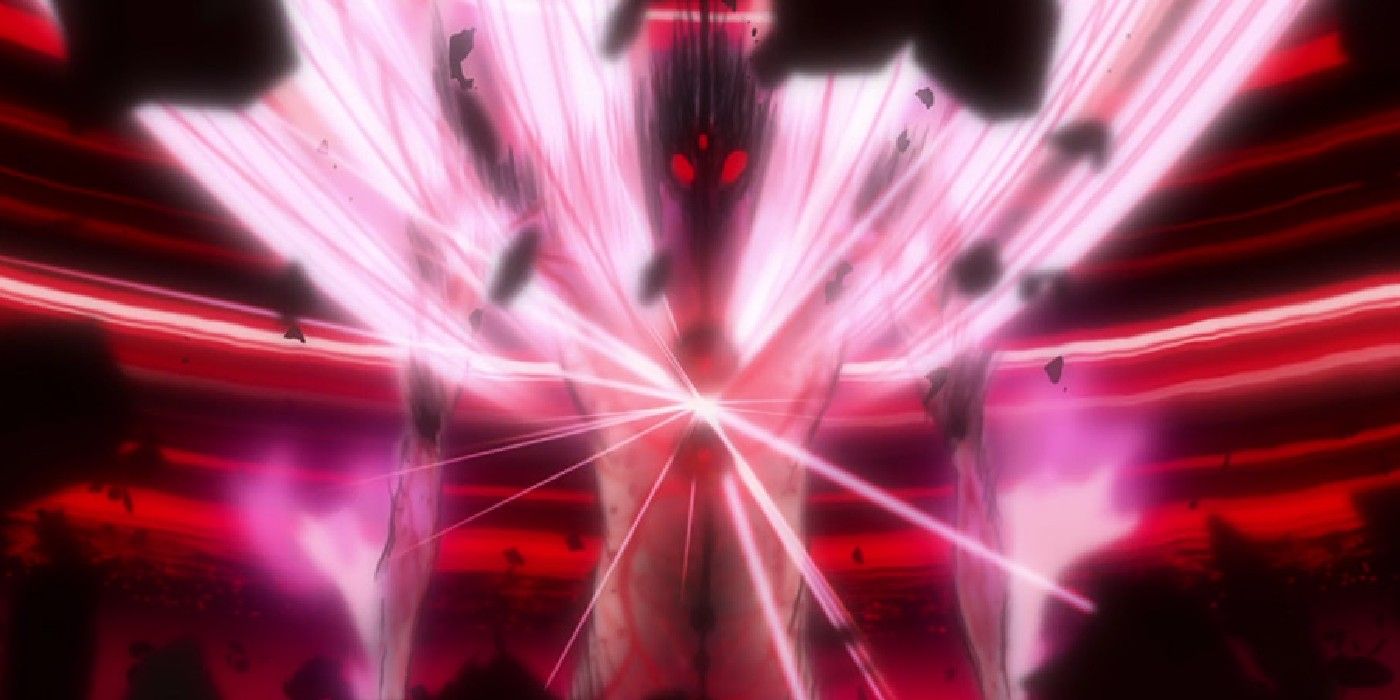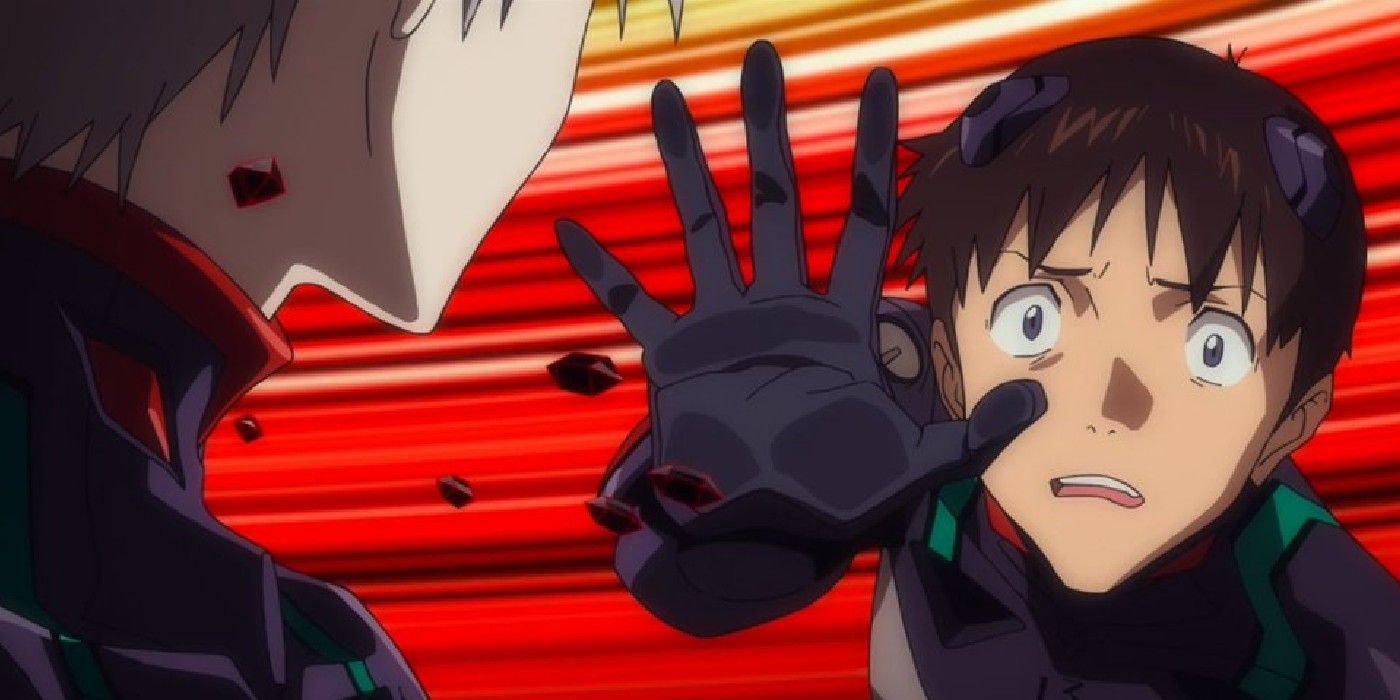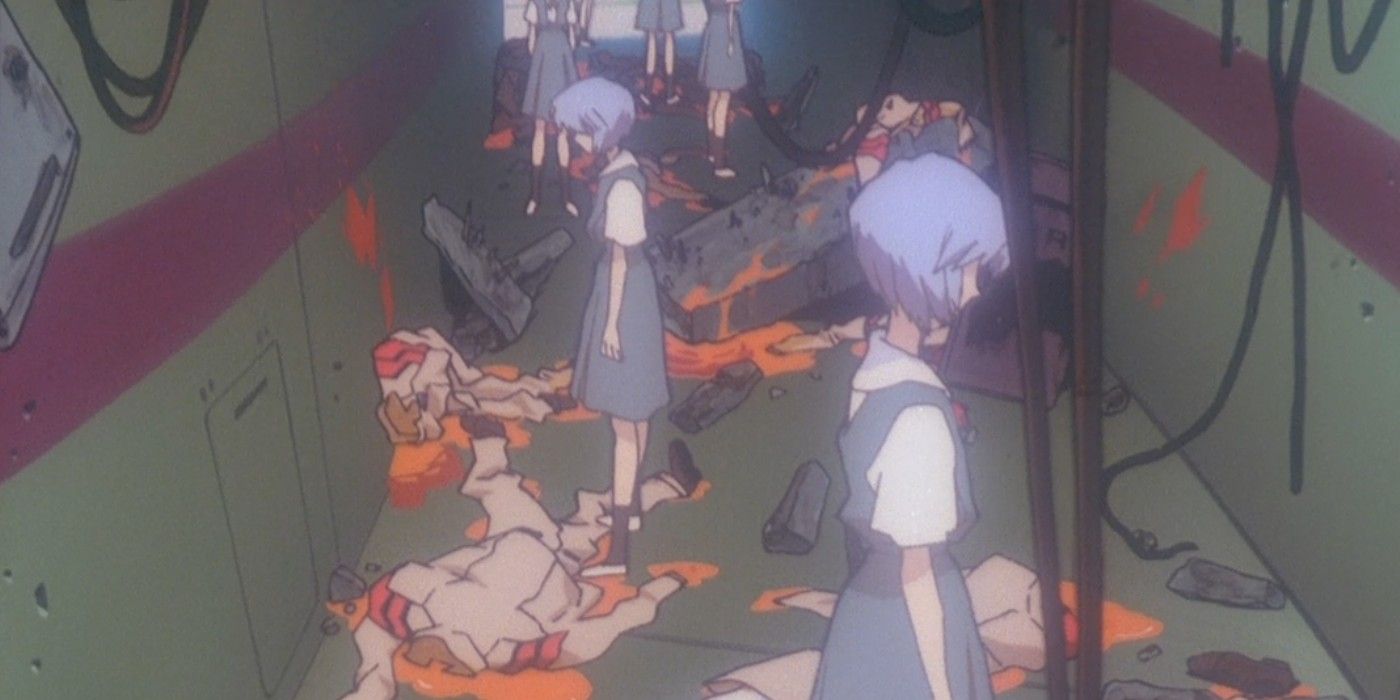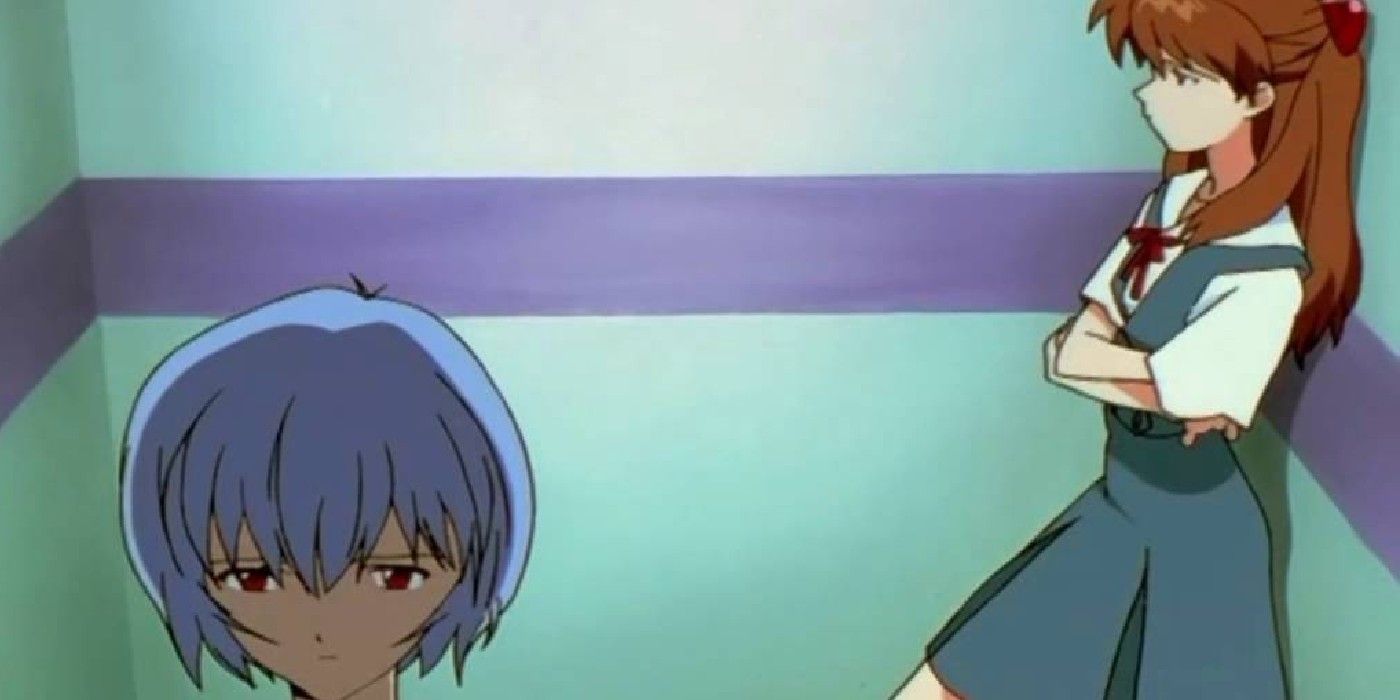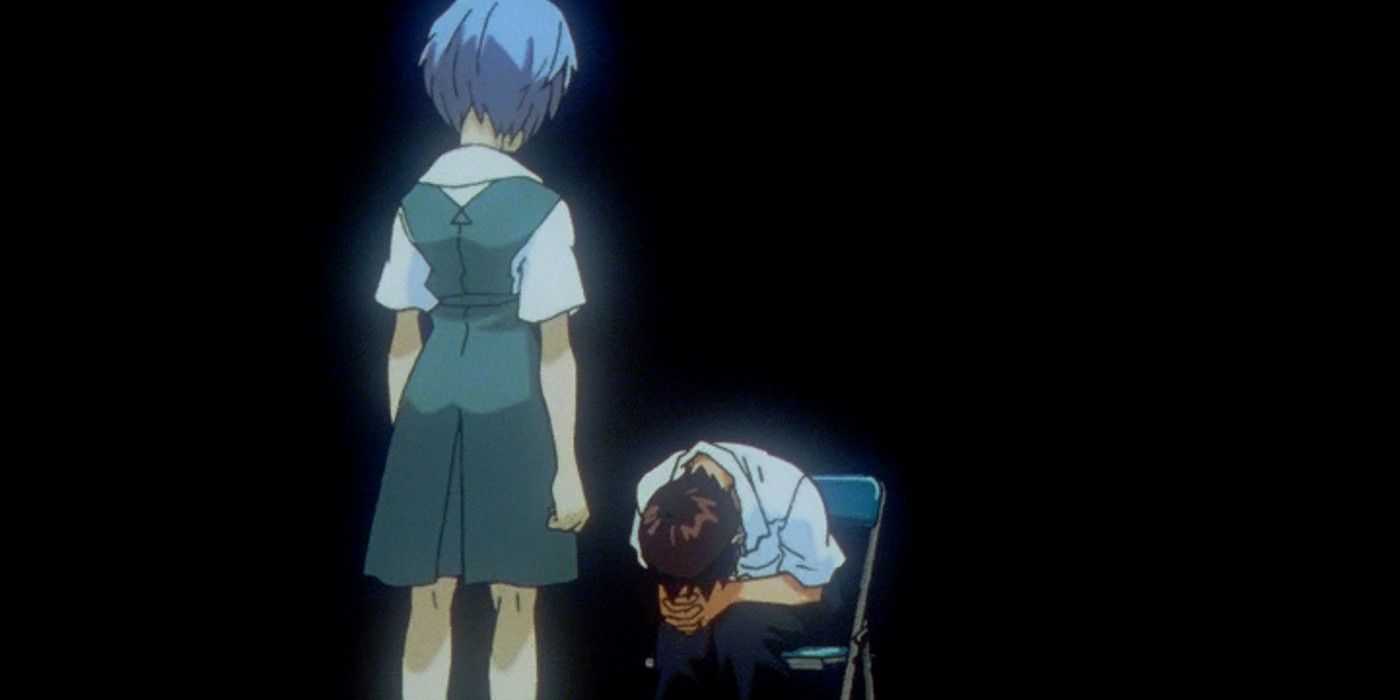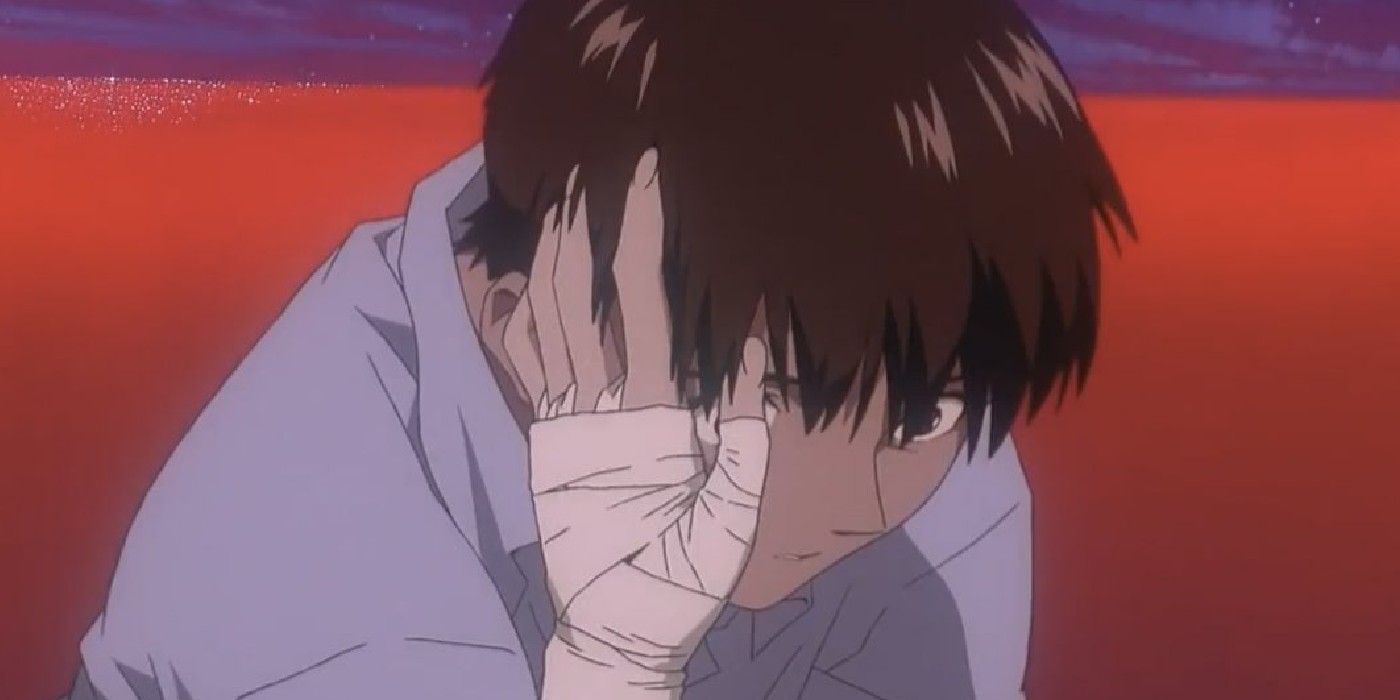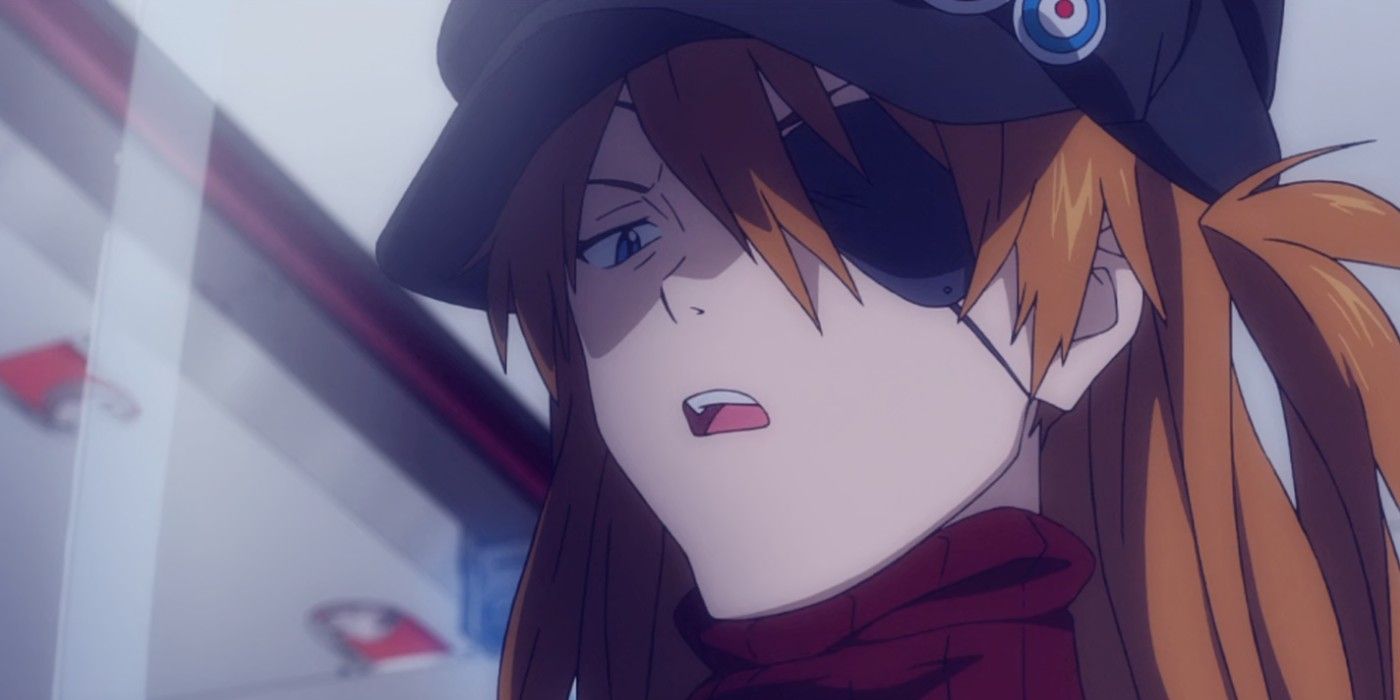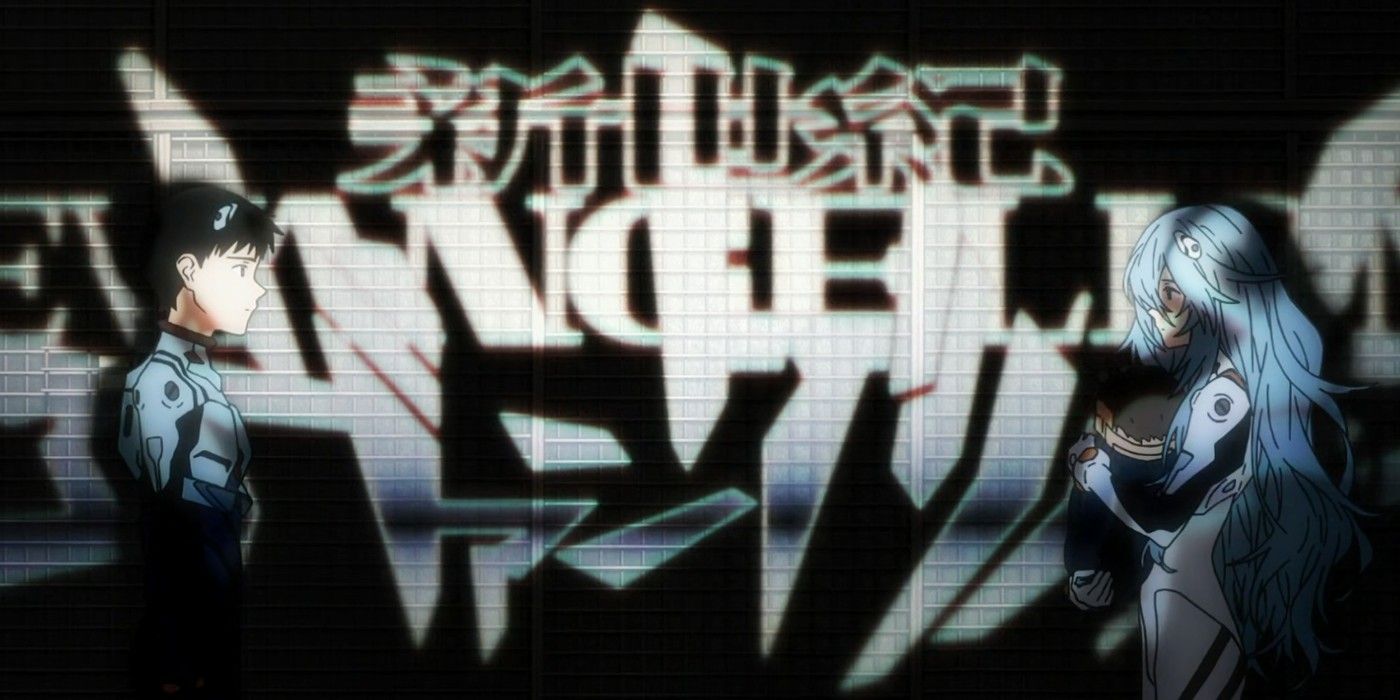It's not groundbreaking to say that Neon Genesis Evangelion didn't just deconstruct the mecha anime, but served as its antithesis. Demolishing mecha clichés wasn't just Evangelion's bread and butter; it was its life and destiny.
That said, Shinji Ikari's tragedy wasn't just nihilistic for the sake of it. Beneath all the pessimism and suffering was a brooding affirmation of life and change that can and should be read more as tough love than mean-spirited hate.
WARNING: Spoilers for all of Evangelion ahead.
10 The Angels Are Not Typical Monsters-Of-The-Week
Going by first impressions alone, the Angels were the typical kaijus that the good guys beat up once per episode. This was the case for the anime's first half, but then the harrowing truth was revealed: the Angels weren't just humans that followed a different evolutionary path, but the unwitting harbingers of the Third Impact.
Since Angels' evolution sacrificed cognitive thought for immense power, they instinctively attacked Tokyo-3 because that's where Adam's remains were kept. Another deconstruction was that the Angels weren't all distinctly evil humanoid aliens; they were indescribable behemoths that had more in common with Biblical angels than anime kaiju.
9 The Evangelions Are Living Creatures, Not Mere Robots
Generally speaking, giant robots are vehicles. If super robot anime depicted them like a superhero's signature car, real robot anime treated them as bipedal tanks. Either way, giant mecha were cool anime robots that were also an extension of their pilot's best traits. Meanwhile, the Eva Units are literally walking corpses.
To be specific, the Evangelions were made from the revived remains of Angels, which explains their uncannily lifelike movements, humanoid forms, their monstrous Beast Mode, and more. Additionally, the Evangelions are brought to life by the soul of their pilot's mother, which is why they only respond so well to specific child pilots.
8 Giant Robots Helped End The World, Not Protect It
Broadly speaking, giant mechas are mindless weapons; it was up to the pilots if they would use them responsibly or abuse the immense power now in their hands. In fact, a common moral dilemma that the mechas' creators faced was the realization that their inventions were used to wage war, not the self-defense they envisioned.
In contrast, the Evangelions were made for no other reason than to end the world. Fighting the Angels was never about protecting Tokyo-3, but advancing the Third Impact. By following what was written in the prophetic Dead Sea Scrolls, SEELE and Gendo Ikari made the Eva Units not as weapons, but as the apocalypse's pawns and tools.
7 Piloting A Giant Robot Was Horrifying, Not Fun
Piloting a robot like a Knightmare or the Gunmen is one of the most common dreams young anime fans have. Even if there would be hardships like the realities of war and personal insecurities, piloting a giant robot is either aspirational or even destined.
This is something that Evangelion (in)famously defied, with Shinji's trauma being the best summary of this deconstruction. Besides Shinji's mental anguish only worsening due to him being a child soldier stuck in a disturbingly Freudian robot, he was only "the chosen one" because everyone, especially his father Gendo, was using him.
6 The Human Experience Itself Was Mankind's Worst Enemy
Giant robots bringt out mankind's best and worst qualities. For every antagonist determined to push humanity' warmongering to the breaking point, there is an idealistic hero fighting for the hope of peace. This ideological clash is then made literal by a decisive mecha duel.
Evangelion, meanwhile, argued that humans are inherently terrible, sad, and lonely beings – which are traits that a mecha anime's world exacerbated. This is why Human Instrumentality was more about ending human individuality than the world, and why Gendo wanted to do the same in the Rebuild Of Evangelion tetralogy – rejecting a world where he felt abandoned and alone.
5 The Characters' Quirks Were There For Tragic Reasons
Like any other mecha anime out there, Evangelion was populated by a cast of memorably eccentric characters. It could even be argued that the anime defined the template for today's character archetypes and tropes, with Rei Ayanami and Asuka Langley Soryu even being credited as the progenitors for modern day archetypes.
That said, what these imitations forget is that Evangelion's cast only had instantly recognizable quirks because they were their trauma responses. For example, Rei was courteous and stoic only because she was a clone with no understanding of emotions, and Asuka was only a hot-headed tsundere because aggression was her coping mechanism against deep insecurities.
4 The Characters' Mental Health Was Given More Importance Than The Lore
Intricate lore is one of the most integral and beloved mecha mainstays, since it's the only way to justify walking superweapons in the first place. Evangelion always had its share of lore, but the end of the series dropped all worldbuilding to focus on Shinji's mental state. To this day, the anime's experimental finale remains one of the most polarizing creative choices ever made.
That said, using mecha tropes to psychoanalyze characters was always Evangelion's endgame. This was most evident in the recap movie Death And Rebirth and Rebuild's finale Thrice Upon A Time, which left more questions than answers, but prioritized examining the cast's minds and giving them emotional closure.
3 Shinji Ikari Was Written To Be Unlikable For Painfully Realistic Reasons
One of the most prevailing criticisms against Evangelion is that Shinji is a terrible mecha anime hero. Not only was he cowardly and riddled with self-hatred, he crossed more lines than anyone could count. Such was the case that Shinji's unresolved angst led him to end the world not once, but thrice. The thing is, this was always the point: Shinji is a detestable mecha protagonist precisely because he's a 14-year-old boy.
Unlike other mecha pilots who are depicted as child heroes and teenage prodigies, Shinji was based on actual teenagers, specifically Evangelion creator Hideaki Anno's own youth. Rather than let viewers project themselves into a idealized anime youths, Evangelion forced them to face some unlikable but truthful reflections in Shinji.
2 Long-Running Mecha Anime Are Treated Like Symptoms Of Arrested Development
Normally, a mecha franchise's longevity is a sign of success and quality. Case in point, the iconic Mobile Suit Gundam is both a media empire and a cultural milestone. As far as Anno is concerned, though, the opposite is true. To him, Evangelion's continued presence and influence on pop culture isn't a sign of success, but of fans' failure and refusal to mature.
This subtext is barely subtle in the anime especially the Rebuild movies, which weaponized nostalgia instead of pandering to it the way a new Gundam movie or series would. The comfort and familiarity of Evangelion – as embodied by the ageless Curse Of Eva and time loop – were not comfort zones to escape to, but break out of and end forever.
1 Mecha Anime Used To Be The Pinnacle Of Juvenile Escapism
Of anime's many genres, the mecha niche is one of the most empowering. Not only are the noble audience-surrogate pilots given an amazing feat of technology to control, they can literally fight for truth and justice by punching evil in its robotic face. Evangelion countered this by depicting the genre as nothing more than childish escapism.
Rather than give mecha anime fans what they expected and wanted, Evangelion tore down the pillars of mecha fiction not out of spite, but to show that there was a world beyond power fantasies about cartoon robots. Despite the original anime and Rebuild movies' differences, a constant in NGE was how Shinji's life was always better without the Evas.

